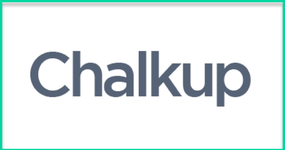
But I need to convince people that they don’t need to strain their necks and look upward for solutions. These skyscrapers - monoliths that have formerly dominated the edu industry - aren’t as innovative, agile, and as ready to move as I am.
All urban planning analogies aside: edtech is exploding right now. I’m finding more and more new companies that claim to be better and smarter and faster. I’m simultaneously watching Apple claim it’s place in education, as well as Moodle, Blackboard, Canvas, and Google Classroom scramble to reimagine their services and (re)-secure their corner of the market.
My take on all this? The little guys are generally ready to move faster but have a lot of kinks to work out. The big guys have more resources, but are often adjusting to new trends, weighed down by decades of feature creep.
How do I win here?
Suppose I’ve got to go further and do it faster than anyone else. I’ve got to reimagine what the big guys built and surround my company with people who believe in the mission. (And do it with fewer resources.) I’ve got to stay ahead of the new guys and ensure that my platform is stronger, faster, and truly superior to what they’re putting out there. (While keeping up with the innovations new thinkers are bringing to the industry every day.)
It’s possible. Don’t break out your tiny violin for me just yet. This isn’t a “man, it’s hard to be a startup!” essay.
To be an edtech startup, you must do the things that many of your larger, more established competitors are too big to do. This means going to classrooms. Talking to individual educators. Allowing schools who believe in your vision to guide your product design. And you need to do it quickly and competently enough to stand out among newer, more nimble competitors.
I love Chalkup, the product I imagined in college and launched shortly thereafter. As far as learning management systems go, I truly believe we’re doing something different (in a way that’s better….not just different). And I think we’re positioned to move faster than the big guys. We’re not bogged down with clunky interfaces and unnecessary features, and we’ve logged a lot of time in classrooms, differentiating us from the plethora of new edtech companies that still have much to figure out.
But, still. Is it a frustrating position to be in? Sure. As I hinted earlier, there is new competition of varying degrees of quality emerging all the time. All while established players who aren’t reimagining learning - or innovating as fast as we need them to - remain dominant across the industry.
Is it maddening? Totally. Would I rather be doing anything else? Absolutely not.












